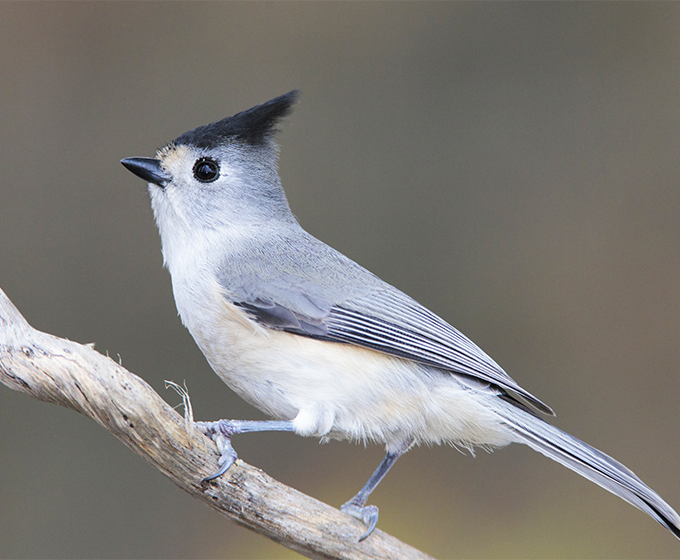
NOVEMBER 5, 2020 — A multidisciplinary team of UTSA researchers is collaborating on a project to transform San Antonio’s urban backyards and public spaces into living laboratories for community science education.
Their project aims to increase knowledge of the ecological effects of backyard feeding on birds, build capacity for community science in San Antonio and promote pathways to nature engagement in historically underserved, majority-Latino urban communities.
Jennifer Smith, a professor in the Department of Environmental Science and Ecology; Kenneth Walker and Annette Portillo, professors in the Department of English; and Amelia King-Kostelac, a doctoral candidate in the Department of Educational Leadership and Policy, have been awarded a $265,000 grant through the Hispanic-Serving Institutions Education Grants Program hosted by the U.S. Department of Agriculture’s National Institute of Food and Agriculture to conduct their project.
The USDA-NIFA provides leadership and funding for programs that advance agriculture-related sciences. The HSI Education Grants Program is designed to strengthen HSI programs that attract outstanding students who, upon graduation, enhance America’s food and agricultural scientific and professional workforce.
The team’s project, “Seeding Success for Underrepresented Students: Informal STEM Learning through Community Science, Avian Ecology and Ethnic Studies,” is a collaborative community- and place-based effort in science, culture and education.
“Our model for ‘Seeding Success’ integrates avian ecology through backyard bird feeding and neighborhood-level community science, and culturally responsive schooling through engagement with Indigenous and Mexican American studies,” said Smith. “By emphasizing the importance of local cultural knowledge, we aim to address prevalent misconceptions about how science, Indigenous and Mexican American studies intersect through place-based practices of nature engagement and conservation.”
“This project,” Portillo said, “seeks to bridge cultural literacies by collaborating with and actively engaging with Indigenous and Mexican American communities in San Antonio. Similar to Tucson Unified School District’s highly successful MAS program in urban school districts, this project, that is grounded in culturally relevant educational programming, will also center the importance of ethnic studies as it relates to history, literature and environmentalism.”
The project will offer experiential workshops and neighborhood activities that encourage critical discussion about scientific and cultural practices within San Antonio and the surrounding region. It aims to develop leadership skills, promote scientific and cultural literacies and conservation behaviors, and build educational bridges for students from K–12 schools to HSIs, including UTSA.
As a project that foregrounds culturally relevant pedagogy to motivate learning, it seeks to cultivate in all participants the ability to contemplate, trouble, and provide critical feedback on the ways in which scientific practices, nature engagements and conservation behavior overlap or diverge from participants’ cultural contexts.
“By evaluating the effects of living laboratories for community science engagements in underserved neighborhoods in San Antonio, we anticipate we will see an increase in participant understanding of scientific research and placed-based knowledge and thus an appreciation for science and culture in urban neighborhood settings,” explained Walker.
“By increasing familiarity and comfort with scientific and cultural practices broadly, and with ornithological skills in particular, we anticipate an increased interest in pursuing ecological, educational and ethnic studies as an intersectional way to address contemporary social and environmental crises,” added King-Kostelac.
UTSA Today is produced by University Communications and Marketing, the official news source of The University of Texas at San Antonio. Send your feedback to news@utsa.edu. Keep up-to-date on UTSA news by visiting UTSA Today. Connect with UTSA online at Facebook, Twitter, Youtube and Instagram.
Move In To COLFA is strongly recommended for new students in COLFA. It gives you the chance to learn about the Student Success Center, campus resources and meet new friends!
Academic Classroom: Lecture Hall (MH 2.01.10,) McKinney Humanities BldgWe invite you to join us for Birds Up! Downtown, an exciting welcome back event designed to connect students with the different departments at the Downtown Campus. Students will have the opportunity to learn about some of the departments on campus, gain access to different resources, and collect some giveaways!
Bill Miller PlazaJoin us for an intimate evening of cocktails, conversation, and culinary inspiration with Pati Jinich, Emmy-nominated chef and James Beard Award-winning author. Enjoy light bites and signature drinks in the warm, modern setting of Mezquite as Pati connects with guests over her passion for Mexican cuisine and storytelling.
Mezquite Restaurant in Pullman Market, 221 Newell Ave., San Antonio 78215From inspired courses to thoughtful pairings and a rich sense of community, the Ven a Comer Signature Dinner is a night of shared meals, shared stories, and unforgettable flavor.
Stable Hall (Pear Brewery), 307 Pearl Pkwy, San Antonio 78215Come and celebrate this year's homecoming at the Downtown Campus with food, games, giveaways, music, and more. We look forward to seeing your Roadrunner Spirit!
Bill Miller PlazaThe University of Texas at San Antonio is dedicated to the advancement of knowledge through research and discovery, teaching and learning, community engagement and public service. As an institution of access and excellence, UTSA embraces multicultural traditions and serves as a center for intellectual and creative resources as well as a catalyst for socioeconomic development and the commercialization of intellectual property - for Texas, the nation and the world.
To be a premier public research university, providing access to educational excellence and preparing citizen leaders for the global environment.
We encourage an environment of dialogue and discovery, where integrity, excellence, respect, collaboration and innovation are fostered.